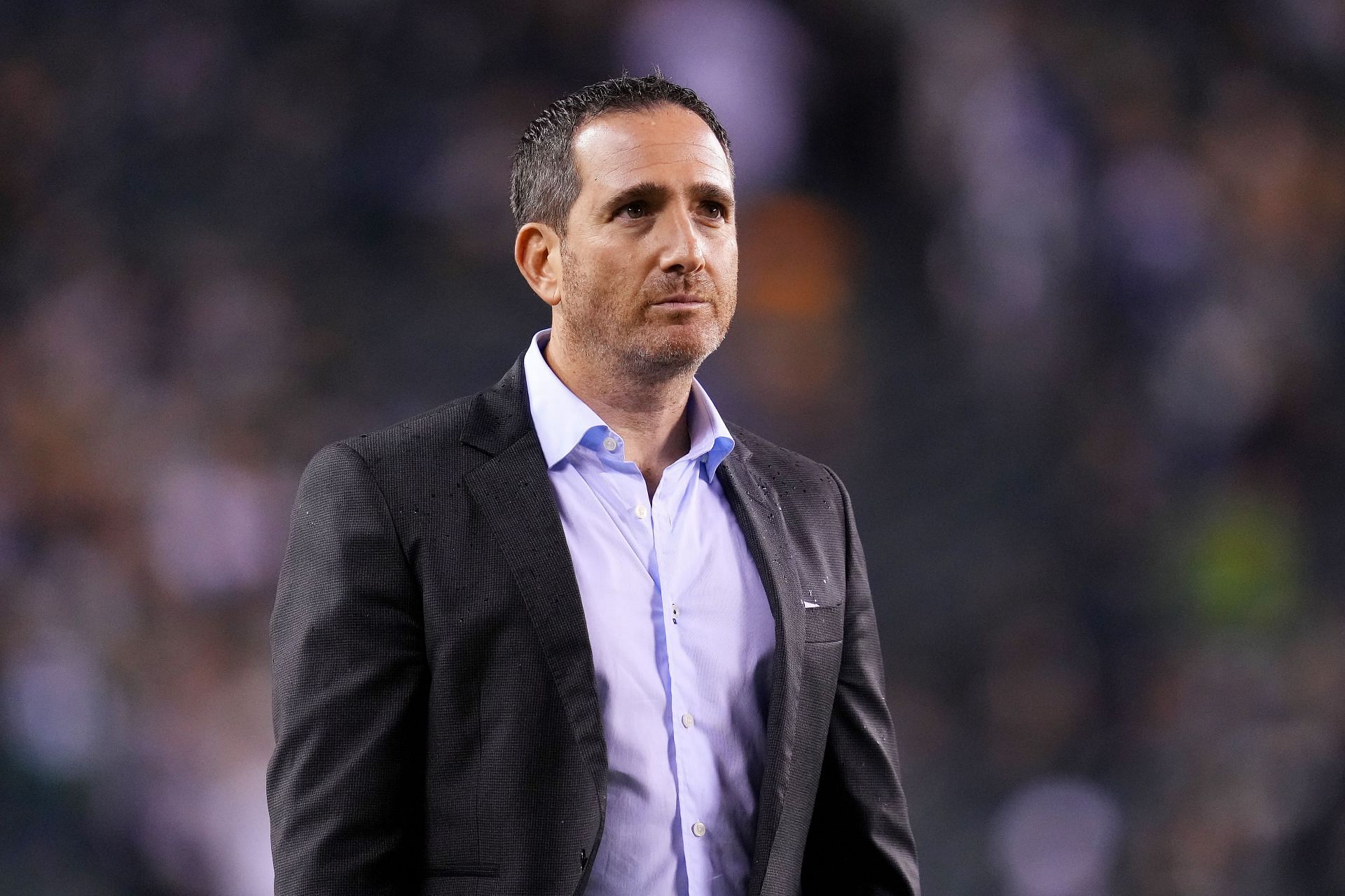
Did Super Bowl playing surface affect Eagles’ chances? GM Howie Roseman makes stance clear
The Philadelphia Eagles lost a close game in the Super Bowl, and it's natural to wonder what the difference might've been in such a narrow loss.
One of the reasons why Philadelphia fans thought the team was at a disadvantage was the playing surface. Although the NFL takes a ton of care with any Super Bowl field, clearly the players were struggling with the field during the game. On several occasions, players were seen slipping.
Eagles fans seemed to think that, with a slippery playing surface, the advantage on the trenches was negated, as the pass rushers couldn't pressure Mahomes fast enough. The theory was presented to general manager Howie Roseman during Thursday's end-of-season press conference, but he categorically denied it:
“Both teams played on the same field.”
A slippery playing surface took away some of the speed of the game, but the Kansas City Chiefs players also suffered from the issue. To say that was one of the reasons the Eagles lost isn't the right thing to do.
To be fair, not a single Philadelphia player used this as an excuse. They acknowledged that Kansas City played a great game and deserved to win, refused to point to the referees as a problem and also knew that the field was a problem for both teams.
How does the Super Bowl playing surface get prepared?
The league grew the grass on a farm two years prior to the game and spent $800k in preparation for the best playing surface. It did not work out.
The State Farm Stadium has a history of slippery playing surfaces in big games, especially in college football. The BCS National Championship Game in 2010 had many players from Oregon and Auburn complaining; the same thing happened five years later in the playoff final between Alabama and Clemson.
It's been a problem for the State Farm Stadium in the regular season as well. In the opening week, a Chiefs cornerback got hurt after slipping against the Arizona Cardinals. The grass got rolled in and out of the stadium every day for two weeks prior to the Super Bowl.
